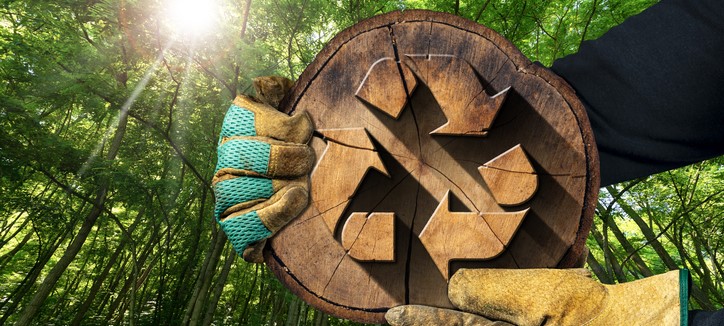sustainability
Waste-2-Value – Sustainability and Revenue Creation Hand-in-Hand

Today, many corporations face three seemingly independent challenges:
– “How do we become an environmentally sustainable corporation?“
– “How do we maximize our revenue streams?“
– “What should we do to improve our organization’s efficiency?“
Too often, the business starts a series of independent projects: investing in renewable energy technologies, developing a game-changing product to disrupt their market, or seeking AI to improve their operations and resource utilization.
What if your organization could solve those challenges simultaneously?
Waste-2-Value
NineSigma’s clients have sometimes spent years optimizing their manufacturing processes. They are remarkably effective at producing high-quality products at scale. Unfortunately, no production process is 100% efficient, and inevitably there are energy losses, side products, or ‘waste.’ On a large scale, these ‘waste’ streams can be significant, and disposing of the waste increases costs.
This is an opportunity for your organization:
Imagine you could create value from your waste.
Recent Waste-2-Value Initiatives
Over the past 4 years, NineSigma has noticed a trend where all industries have become more conscious that the waste they are producing is an untapped resource. This shift is driven by changes in governmental regulations and, on the demand side, customers expecting companies to be more sustainable and environmentally friendly.
Who are the pioneers in their fields that are taking the first steps in waste-to-value?
Here are two use cases to inspire you.
Case Study 1 – ‘Giving Poultry Waste a Second Life’
One of the big poultry producers in the Middle East and Saudi Arabia, Tanmiah Food Company (TFC), grows, processes, and sells more than 180 million birds to the local market (Kingdom Saudi Arabia) and other neighboring countries every year. Due to the nature of the business, their operations generate over 120 thousand tons of poultry waste annually, mostly broiler chicken farm waste. Disposing of this waste costs millions of dollars per year. Given TFC’s ambition to expand its business to 1 million birds per day, these costs could increase substantially by 2027
By organizing a prize-driven innovation contest with NineSigma, TFC received over 93 proposals from innovative organizations around the globe. Each proposal described a different approach to create valuable products from TFC’s waste streams.
After an internal and external jury evaluated the proposals, Polymeron, a Saudi start-up at King Abdullah University of Science and Technology, was selected as the challenge winner. TFC and Polymeron started a new venture that should process more than 120 thousand tons of chicken waste and turn this into renewable energy and biodegradable plastic for agricultural mulching applications. This plastic not only helps to reduce carbon due to its carbon-negative nature but also improves soil fertility instead of damaging it in the case of fossil-based plastic.
TFC partner companies are currently exploring other uses of the new product developed from biochar, such as the nonagricultural application of biochar in concrete and packing. For this purpose, TFC is working with external partners
It’s estimated that in addition to saving millions of USD per year in waste disposal costs, TFC’s approach could generate new revenues from selling biochar-based materials and generating carbon credits from them.
An excellent example of how an ambitious corporation can ‘Turn Waste into Value.’.
Case Study 2 – Waste-2-BTX
Today, the global benzene-toluene-xylene (BTX) market volume is estimated to be 137.61 million tons per year and is expected to continue growing. One of NineSigma’s clients wanted to create sustainably sourced BTX products. They needed to understand which technologies they should invest in to gain market share in this segment.
NineSigma identified 10 different opportunities for 10 different types of locally available ‘waste’ and recommended our client to invest in three technologies.
Technology 1: Would enable them to process local, common solid waste into syngas at an industrial scale and convert the syngas to BTX.
Technology 2: Allow them to process the glycerol into BTX. Our client decided to invest in and develop this early-stage technology to optimize and scale the process.
Technology 3: Allow them to process a wide range of biomass into a BTX mixture.
By investing in these opportunities, NineSigma’s client:
– Expanded their technical ability effectively
– Developed a competitive and sustainable product portfolio rapidly by collaborating with external technology providers.
– Created new business models converting someone else’s waste into value.
Other Waste-2-Value Projects
NineSigma has supported many other companies with their Waste-2-Value journey, including: Nike Material Recovery Challenge, Neste’s CO2 to Value, and the Pyrrhotite challenge organized on behalf of VALE Base Metals.
Your Waste-2-Value Journey with NineSigma’s Support
With our in-house expertise on waste-2-value initiatives, NineSigma’s team is happy to support you in defining your waste-to-value initiatives and turning them into successful business opportunities.
Written by Tom Vranken, Innovation Program Manager at NineSigma.
Other topics :
Get in touch
NineSigma Europe BV
Koning Leopold I straat 3B-3000 LeuvenBelgium

+32 16 24 42 80

europe@ninesigma.com
USE CASES
You may also like...

Business Trends in Battery Recycling and Reuse
Batteries are indispensable today, powering a vast array of essential devices and technologies, from portable gadgets like smartphones and laptops to critical medical equipment. Ba…

5 Trends in Sustainable Aviation Fuel
Taking flight towards sustainability In an era where environmental concerns loom large, the aviation industry is facing increasing pressure to reduce its carbon footprint. One prom…

Living Better on Earth by Adopting Innovative & Sustain…
In a rapidly evolving world with climate change, innovation has become the basis of progress, driving societies towards sustainable development and addressing the urgent challenges…



